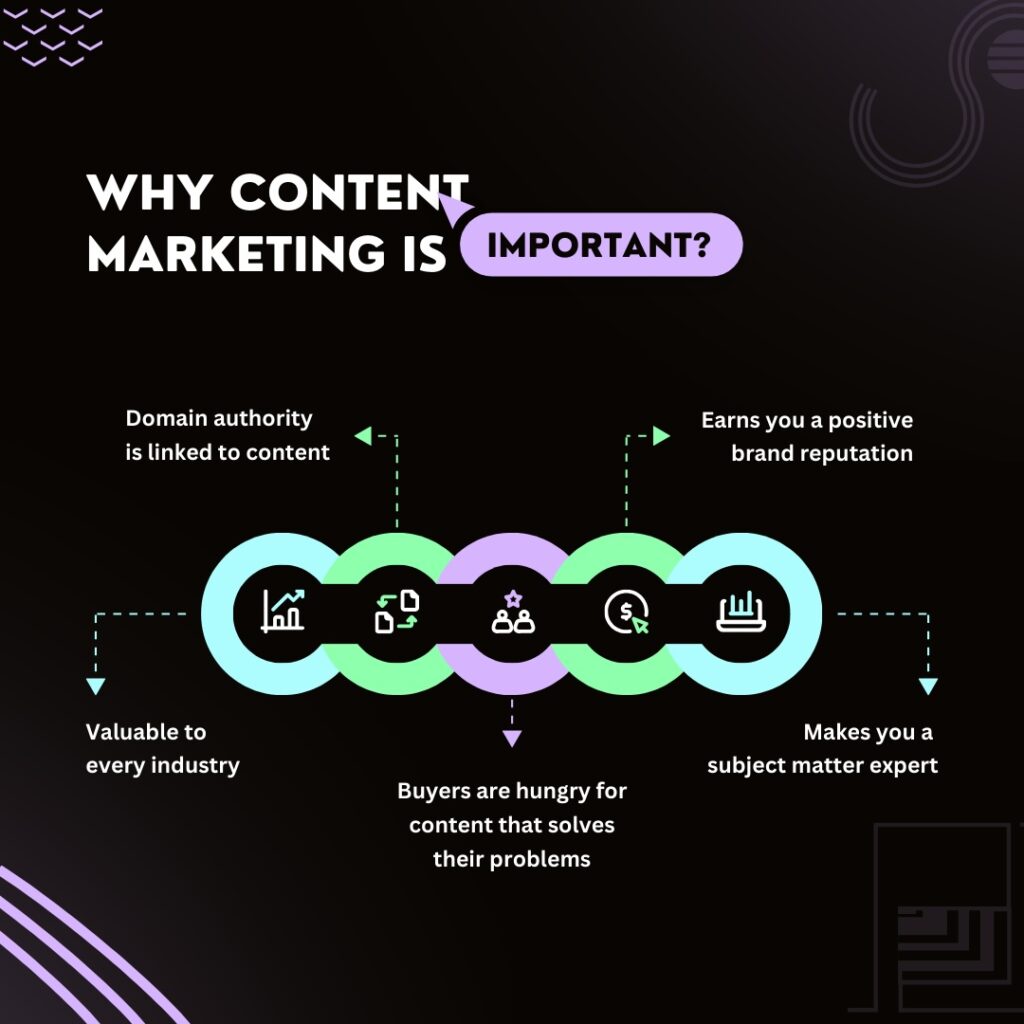In the tumultuous landscape of business, revenue fluctuations are not uncommon. During times of decline, businesses often seek innovative strategies to navigate challenges and maintain a competitive edge. This article explores the dynamic role of content marketing as a strategic tool to counter declining revenues. From audience engagement to long-term brand building, we delve into ten key points to harness the power of content marketing for sustained business growth.
- Audience Engagement:
In the face of declining revenues, maintaining a strong connection with your audience becomes paramount. Content marketing provides a platform for meaningful engagement. Regularly publishing relevant and valuable content keeps your audience informed, entertained, and connected. This ongoing dialogue fosters brand loyalty and encourages continued patronage. - Building Trust and Credibility:
Trust is the bedrock of any successful business relationship. During challenging times, consumers are more discerning about where they invest their money. Content marketing allows businesses to build trust and credibility by consistently delivering valuable information, insights, and solutions. When customers trust a brand, they are more likely to remain loyal and recommend it to others. - Educating Customers:
A well-crafted content marketing strategy serves as an educational tool. In times of revenue decline, consumers may be more selective about their purchases. By providing educational content, businesses can demonstrate the value and benefits of their products or services. This approach helps customers make informed decisions and positions the brand as an authority in the industry. - SEO Benefits:
The importance of a strong online presence cannot be overstated. Content marketing plays a pivotal role in improving search engine rankings. By consistently creating high-quality and relevant content, businesses can enhance their SEO, leading to increased visibility on search engine results pages. Improved rankings translate to more organic traffic, potentially boosting sales and leads. - Cost-Effective Marketing:
In times of financial constraint, the cost-effectiveness of marketing efforts becomes crucial. Content marketing is renowned for its cost-effectiveness compared to traditional advertising. Creating and distributing valuable content online is generally more budget-friendly, making it an attractive option for businesses seeking efficient marketing strategies. - Retention and Loyalty:
Retaining existing customers is often more cost-effective than acquiring new ones. Content marketing contributes to customer retention by providing ongoing value. Whether through informative articles, newsletters, or exclusive content, businesses can keep their customers engaged and loyal. Loyal customers are more likely to weather economic uncertainties with the brand. - Adaptability:
The ever-evolving preferences of consumers necessitate an adaptable marketing strategy. Content marketing offers flexibility in terms of format and platform. Whether through blog posts, videos, podcasts, or social media updates, businesses can tailor their content to align with the changing preferences of their audience. This adaptability ensures that the brand remains relevant and resonant. - Understanding Customer Needs:
Effective content marketing involves understanding the evolving needs and concerns of the target audience. Through engagement metrics, feedback, and analytics, businesses can gain insights into customer preferences and pain points. This valuable information guides adjustments to products or services to better meet market demands, positioning the business for resilience and growth. - Showcasing Solutions:
Content marketing serves as a platform for showcasing how products or services address common challenges. Whether through case studies, success stories, or informative guides, businesses can highlight the benefits and value propositions of their offerings. This approach attracts customers actively seeking solutions and positions the brand as a problem-solving partner. - Long-Term Brand Building:
While immediate revenue concerns are pressing, content marketing is a long-term investment in brand building. Consistently delivering valuable content contributes to brand equity. Even during revenue declines, this investment in the brand’s image positions the business for recovery and future growth. A strong brand is more resilient and better equipped to navigate economic uncertainties.
In the intricate dance of business, adapting to challenges requires strategic thinking and innovation. Content marketing emerges as a versatile and potent tool for businesses facing revenue decline. From nurturing audience relationships to providing valuable solutions and building long-term brand equity, the impact of content marketing is far-reaching. As businesses navigate through turbulent times, embracing the tenets of content marketing can not only mitigate immediate challenges but also lay the foundation for sustained success in the future.
Consulting, Technology, E-commerce, Digital, Media, Cloud, Operations & Staffing. Alumni of Pune University.

























